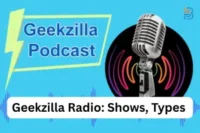How to Interview Someone for a Podcast: A best Guide
Published: 8 Jan 2025
Podcasting is an incredibly powerful way to connect with audiences, share stories, and learn from experts in various fields. If you’re lucky enough to have guests on your podcast, interviewing them becomes an art.
A well-executed interview doesn’t just provide content — it creates memorable moments for your listeners and helps build your authority in your niche. How to Interview Someone for a Podcast

Start with Thorough Preparation
While spontaneity has its place, preparation is critical when it comes to podcast interviews. A good interview starts well before you hit record. Here’s how to prepare effectively. how to prepare for someone podcast interview
Research Your Guest
Before you sit down with your guest, do some in-depth research. Here’s what you should focus on:
Background Information:
Learn about their career, achievements, and the topics they are passionate about. Check their social media profiles, websites, or interviews they’ve done before. interview complete info
Listen to Previous Interviews:
This can be a goldmine. Not only will it help you avoid asking the same questions they’ve been asked a hundred times, but it’ll also give you an insight into their personality, preferred speaking style, and key topics they like to discuss.
Understand Their Audience:
If your guest is a subject-matter expert, knowing their audience helps you tailor questions that align with both their expertise and the interests of your listeners. How Interviewing Inanimate
Prepare Your Questions, But Don’t Over-Script
Having a set of questions is essential, but you shouldn’t rigidly follow them. Prepare an outline of topics you’d like to cover, but leave room for the conversation to flow naturally. Your job is to guide the conversation, not dictate it.
Instead of memorizing word-for-word questions, focus on the big themes:
Main topics you want to explore
- Challenges or successes they’ve faced
- Specific experiences or stories you want to hear
- Practical takeaways your audience can benefit from
- Send Pre-Interview Materials.
- It’s courteous and productive to send your guest an outline of topics beforehand. However, avoid sending a full list of questions as it could feel too formal. A loose outline helps your guest prepare while giving them enough freedom to express themselves.
Set the Stage for a Comfortable Conversation
One of the best ways to ensure a successful interview is to create a relaxed and welcoming atmosphere. If your guest feels comfortable, they’ll be more open, engaging, and forthcoming with their insights. Interviewing Inanimate
Start with a Casual Conversation
Before you officially start recording, engage in some light, friendly conversation. This can break the ice and help calm any pre-interview nerves. Even small talk about a shared interest or something you admire about their work can put them at ease.
Set Expectations
Be clear about the format, duration, and structure of the interview. Tell your guest that it’s okay to make mistakes and that you can edit the conversation later. Giving them confidence to speak freely creates a more authentic interview.
Mirroring Your Guest’s Energy
Your energy plays a significant role in how your guest responds. If you’re calm, enthusiastic, and curious, your guest is more likely to mirror that energy. Try to be mindful of your body language, tone, and facial expressions, especially in virtual interviews. Podcast Celebrities Interviews
Ask the Right Questions

Now that the stage is set, it’s time to dive into the interview itself. The questions you ask can make or break the conversation.
Avoid Yes/No Questions
Aim for open-ended questions that encourage your guest to elaborate. Here are some examples of great questions:
- “Can you tell me more about how that happened?”
- “What was the most difficult challenge you faced in this project?”
- “How did you come to that conclusion?”
- “What’s the best piece of advice you’ve received?”
- Ask About Personal Experiences. 100 Podcast Interview Questions
- People love stories. Asking your guest to share personal experiences makes the interview more relatable and memorable. For example:
- “What was the moment you realized your career had shifted in a big way?”
- “Tell us about a failure that ultimately led to your success.”
- Go Beyond Surface-Level Questions
- Most podcast hosts have the same stock questions, so avoid the obvious. Instead, ask questions that go deeper into your guest’s experiences, mindset, and challenges. For instance, instead of asking “What’s your book about?”, ask “What inspired you to write this book, and what did you learn during the process?”
The “Record Skip” Question
Sometimes guests can fall into autopilot and start giving canned answers. To break this pattern, ask a “record skip” question — one that catches them off guard or shifts the direction of the conversation. For example:
- “What’s a common misconception about your industry?”
- “If you had to start over, what would you do differently?”
- Follow Up with Questions
- Don’t be afraid to ask follow-up questions based on what they’ve just said. When a guest shares something intriguing, dig deeper. For example:
“That’s fascinating — can you tell us more about how you managed that situation?”
“What’s the most important lesson you learned from that experience?
Encourage Vulnerability
One of the most powerful aspects of podcast interviews is the ability to share real, raw, and unfiltered stories. However, for this to happen, the interviewer and the guest must feel comfortable being vulnerable. 7 Types of Interview Podcasts
Let’s explore how to encourage vulnerability in your interviews and why it’s so important.
Why Vulnerability Matters in Interviews
Vulnerability brings out genuine emotion and honest insights. It allows guests to move beyond surface-level responses and share their true selves. When guests open up about their struggles, fears, or personal growth, they become more relatable and human.
For example, when a guest shares a failure they experienced, it might feel raw and uncomfortable. But it also provides a valuable lesson for the audience, helping them understand the path to success, resilience, and growth. Authenticity is one of the top qualities that listeners seek when consuming podcasts. They want to hear real stories, not just rehearsed soundbites.
Lead by Example: Share Your Own Vulnerability

One of the best ways to encourage vulnerability in your guest is to be vulnerable yourself. If you share your personal stories, challenges, and moments of growth, it signals to your guest that it’s okay to do the same. Vulnerability breeds vulnerability.
How to lead by example:
- Share a personal story of failure or struggle: For example, you might say, “There was a time when I really struggled with imposter syndrome in my career.
- I felt like I wasn’t qualified to be doing what I was doing. But over time, I learned how to overcome that. Have you ever faced something similar?”
- Express your emotions openly: During the interview, let your passion or excitement shine through. If you’re discussing a topic that excites you, don’t hide your enthusiasm.
- Showing genuine emotion can help break down the walls of formality and make the conversation feel more authentic. Podcast Interviewer Tips and Tricks
- Be honest about your flaws or uncertainties: If you don’t understand something the guest says, admit it! Say something like, “I’m not entirely sure I follow what you mean — can you explain that a bit more?” Your honesty makes it easier for your guest to be honest too.
Keep the Conversation Flowing
There are times when interviews can become stiff or drag on. You want your podcast to feel like an engaging conversation, not a scripted back-and-forth.
Active Listening
Show your guest that you’re paying attention by nodding, making eye contact (in virtual settings), and responding thoughtfully. Don’t interrupt, but do add affirmations like “That’s a great point” or “I love that idea.”
Manage Transitions Smoothly
Sometimes, the conversation can veer off-topic. As the host, it’s your job to steer it back while still maintaining the flow. For instance, if your guest goes on a tangent, you can gently guide them back with:
- “That’s a great point, but let’s return to what you were saying earlier about…”
- “I love hearing about that! But before we run out of time, can we circle back to [main topic]?”
- Don’t Rush the Conversation
- It’s easy to feel like you need to keep moving through your list of questions, but don’t rush. Take your time, and let your guest elaborate when necessary. Often, the most interesting responses come after a pause, when your guest has had time to reflect.
End the Interview on a High Note
How you end the interview matters just as much as how you begin it. A strong closing leaves your guest with a positive impression and provides your listeners with valuable insights.
Thank Your Guest
Always express your gratitude for their time and insights. A simple “Thank you so much for being here today, and for sharing all of this with our listeners” can go a long way.
Promote Your Guest’s Work
Give your guest an opportunity to promote any current projects, books, or social media accounts. It’s a nice gesture and helps build goodwill. For example:
- “Where can our listeners find more of your work?”
- “Do you have any exciting projects you’re working on that we should look out for?”
- Summarize Key Takeaways. Social Media best interview podcast
- Before signing off, briefly summarize the most important insights from the conversation. This reinforces the value of the interview and gives listeners a recap.
By showing vulnerability, you demonstrate that it’s safe to be open. It fosters trust between you and your guest and sets the tone for a deeper, more meaningful conversation.
Edit Thoughtfully:
- Focus on trimming unnecessary filler words without over-polishing the conversation.
- Retain the natural tone and personality of the guest.
- Keep meaningful pauses to maintain depth and authenticity.
- Allow emotional shifts to flow naturally, preserving the guest’s energy.
- Highlight surprising moments or tangents that add value to the conversation.
- Ensure the guest’s voice stays central to the discussion.
- Balance pacing for engagement, without rushing through important topics.
- Edit for clarity, but avoid over-editing, which can strip away genuine connection.
Conclusion
Mastering how to interview someone for a podcast is a skill that takes time and practice. The key is to balance preparation with spontaneity, structure with flexibility, and professionalism with genuine curiosity. By following these steps and maintaining a focus on creating a relaxed and engaging environment for your guests, you’ll create podcasts that resonate with your audience and build a strong connection with your guests.
Podcast Interviewing Skills Quiz
Test your knowledge on how to conduct a successful podcast interview! Answer the following questions to see how well you understand the best practices for interviewing guests.
| Podcast Interviewing Skills Quiz |
|---|
A) Having a scripted list of questions ready
A) So you can ask scripted questions
A) Jumping straight into the tough questions
A) Move on to the next topic quickly
A) To make the interview sound perfect
A) Ask only questions your audience will love
A) Cut any pauses in conversation immediately
A) Repeating the guest’s points to ensure clarity Answers:B) Being prepared but staying flexible in the conversation |
| How do I make my podcast guest feel comfortable and open up during the interview? |
|---|
|
Should I follow a script or let the conversation flow naturally during a podcast interview?
While it’s important to prepare and have some key questions in mind, it’s best not to follow a strict script. Relying too heavily on a script can make the conversation feel robotic and less engaging. Instead, use your research to guide the discussion and keep it flexible. Allow the conversation to evolve naturally, and be ready to follow up on unexpected insights or interesting tangents that may come up. This keeps the interview dynamic and ensures that your guest’s personality and expertise shine through in an authentic way
Proudly powered by WordPress

- Be Respectful
- Stay Relevant
- Stay Positive
- True Feedback
- Encourage Discussion
- Avoid Spamming
- No Fake News
- Don't Copy-Paste
- No Personal Attacks

- Be Respectful
- Stay Relevant
- Stay Positive
- True Feedback
- Encourage Discussion
- Avoid Spamming
- No Fake News
- Don't Copy-Paste
- No Personal Attacks






